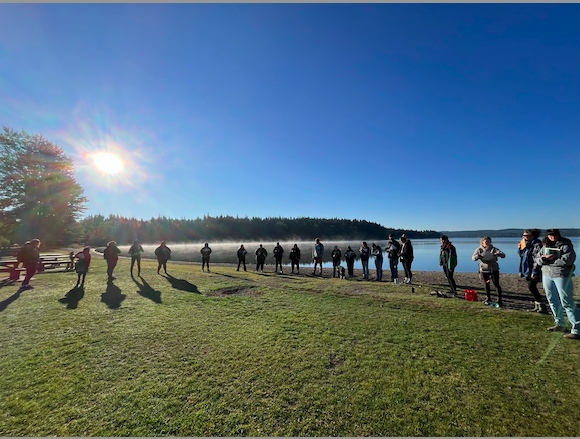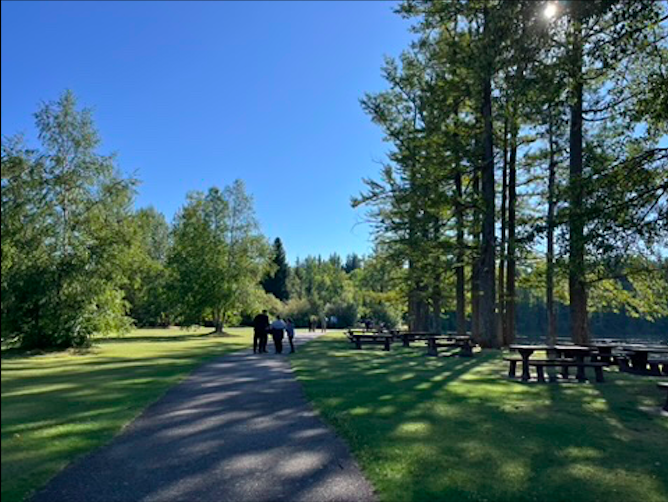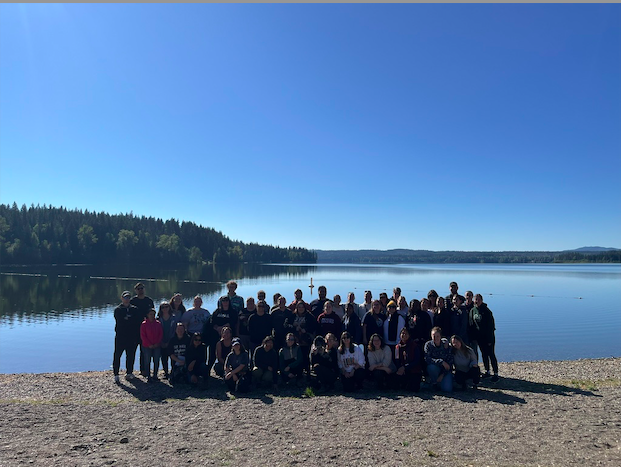Land based learning is an approach to education that values a deep connection between humans and the natural world. Land based learning is rooted in Indigenous ways of knowing, and emphasizes respect, reciprocity, and a holistic understanding of the environment. Incorporating land based learning into the B.C. curriculum is essential for helping students develop a meaningful relationship with the land while also addressing critical topics like sustainability, mental well-being, and cultural respect.

Our outing to West Lake on a crisp sunny morning was a transformative experience! We began by creating our own land acknowledgements, taking five minutes to find a quiet spot on the land to reflect and share. I found this exercise healing as it gave me a rare moment to hold space for silence and think about my connection to the land. It reinforced the reciprocal relationship between humans and nature, reminding me how integral the land is to my physical and mental well-being.
We also engaged in a Walking Curriculum activity inspired by Dr. Gillian Judson’s work. Initially, I thought the activities seemed geared toward younger learners, but as my group completed them, I was struck by how enriching they were. One activity involved finding shapes in nature, and it was fascinating to see how human-made objects often mirror natural forms. Another activity focused on listening to our surroundings, the rustling leaves, birdsong, and even the buzzing wings of bees. These exercises grounded me and heightened my awareness of the natural world.
Our outing to West Lake really shaped my understanding of why land based learning is so vital for young learners. First, it helps regulate their inner selves and promotes calmness and mental clarity . Second, it builds a relationship between students and the land, instilling respect for nature, a core principle of Indigenous ways of knowing.
In my future classes, I plan to incorporate Dr. Judson’s Walking Curriculum into my classroom, especially during seasonal changes to help students understand the passage of time and their place within it. I also see it as a valuable tool for exploring climate activism, helping students connect environmental issues to their local landscapes. My participation in the UNBC Climate Education in Teacher Education workshops will further enrich my approach, and I am excited to bring this inquiry project into my final practicum.
Land based learning is not just an educational tool, it is a practice that connects students to their environment, their communities, and themselves.

